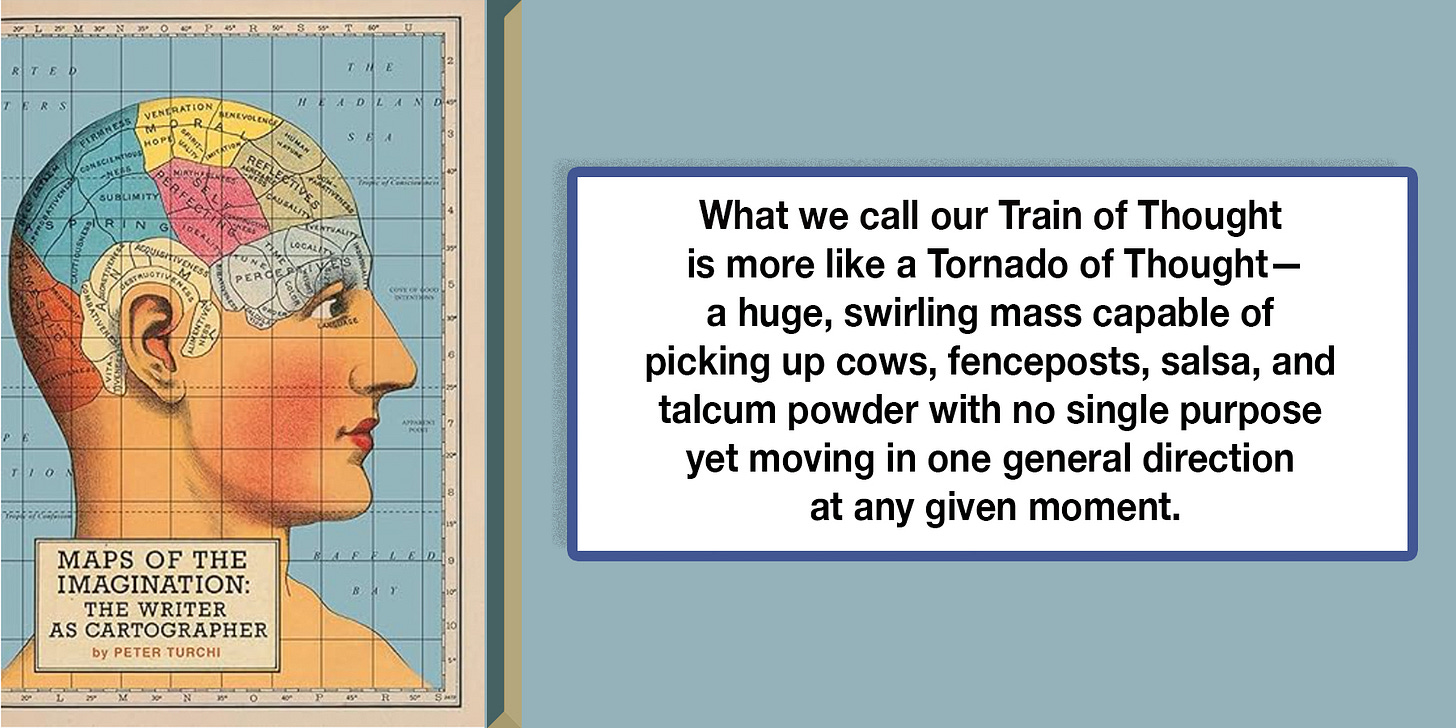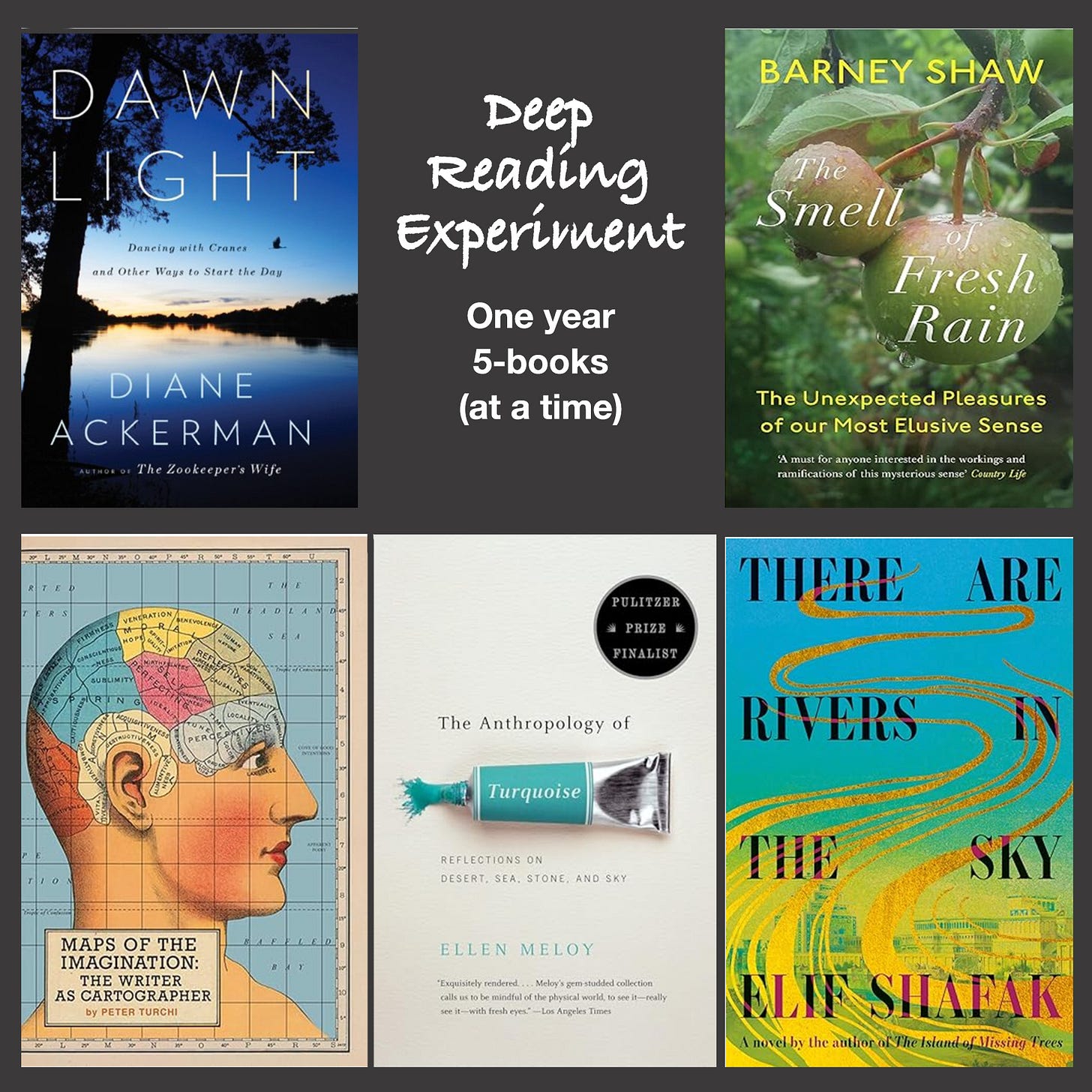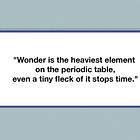Better writing through better thinking, or is it …
Better thinking through better writing, or is it …
Better thinking and writing through better reading?
How to describe a book which is wonderful and thought provoking and at the same time frustrating, overwhelming, and under delivering on my expectations? I think I looked at his book cover and wanted magic.
For me, Turchi’s strength is also my challenge with reading him. Obviously passionate about maps (and there are some beautiful map images included in the book), he works with an excellent metaphor for writing and then takes it too far (again, for me). A recognized and talented teacher of writing, his scope is so broad and deep that for a lesser-read person such as myself, I often feel like I’ve wandered into a deep forest of strangely daunting trees.
Why do we read?
There are probably a thousand answers … when I asked Google, it came back with:
Key reasons to read:
Acquiring knowledge:
Reading allows us to learn new information and facts about various subjects.
Developing critical thinking:
By analyzing text, we can improve our ability to evaluate information and form opinions.
Empathy building:
Immersing ourselves in stories with diverse characters can help us understand different perspectives and develop empathy.
Vocabulary enhancement:
Exposure to a wide range of words through reading expands our vocabulary and communication skills.
Mental stimulation:
Engaging with written content can exercise our brains and improve cognitive functions like memory and focus.
Entertainment and relaxation:
Reading fiction or enjoyable non-fiction can be a source of pleasure and stress relief.
Exploring different cultures:
Through literature, we can learn about different societies and experiences beyond our own.
My own answer would be simpler … because I can … and I must.
Interleaving and the Reading Experiment
Interleaving is deliberately woven into the design of this experiment in deep, active reading. Interleaving is a counter-intuitive practice of mixing learning activities in a way that builds wider understanding and competence. The example used in Make It Stick by Peter C. Brown (et al) is about a baseball batter’s practice. Two choices: A: practice hitting the same type of pitches; B: practice hitting a variety of pitches.
In choice A, the batter quickly feels the improvement. In choice B, the batter doesn’t notice the improvement as much but does better in an actual game.
Multiple studies confirm the value of interleaving. (See more below from Perplexity.)
Here’s a minute and a half video that may help (click the image or caption):
My experience to date with the Deep Active Reading Experiment
As I am mid-way through the 5th round of reading chapters of these five books, here are some thoughts about what I’m noticing:
journaling notes after each reading segment creates a much deeper experience than just highlighting or writing in the margins.
noticing a writing style in one book and then starting to see it in others makes me think about my own writing.
gathering new words, seeing old words used in new ways, catching metaphors and insights seems to be building a stronger writing mindset.
while the books were chosen somewhat at random with little obvious connection of subjects and approaches, it’s beginning to seem as if there is a conversation going on between them as well as between each of them and me.
as I shift between book segments, my understanding of what calls to me … both subjects and styles, is clarifying my preferences.
while this is a slow process, I want to go back and reread every book I’ve ever read … well, at least some of them.
Octavia Butler didn’t call this “interleaving,” however, I think she had the same idea:
“I generally have four or five books open around the house . . . and they are not books on the same subject. They don’t relate to each other in any particular way, and the ideas they present bounce off one another . . . I come up with ideas that I might not have come up with if I had simply stuck to one book until I was done with it and then gone and picked up another.”
― Octavia E. Butler
So … what about you … why do you read? And, do you have a preferred method for getting the most out of your reading?
Previous posts about this experiment:










I almost always have 4 or 5 books going- at least! Funnily enough, one of the books I'm slowly working through is a book inspired by Octavia Butler's journals (with bits of her personal writing included)!
I've always read several books at once without any specific learning intention or journaling, etc. Just because I like to read according to mood and interest. Right now I'm studying 78 degrees of wisdom (Tarot) by rachel pollack, tarot by taschen's biblioteca esoterica, lost empire of atlantis by gavin menzies ( mostly archeology about the minoan civilization finds at knossos and akrotiri which I've visited), listening either to an alan bradley audible mystery, or the power of the crone by pinkola estés.